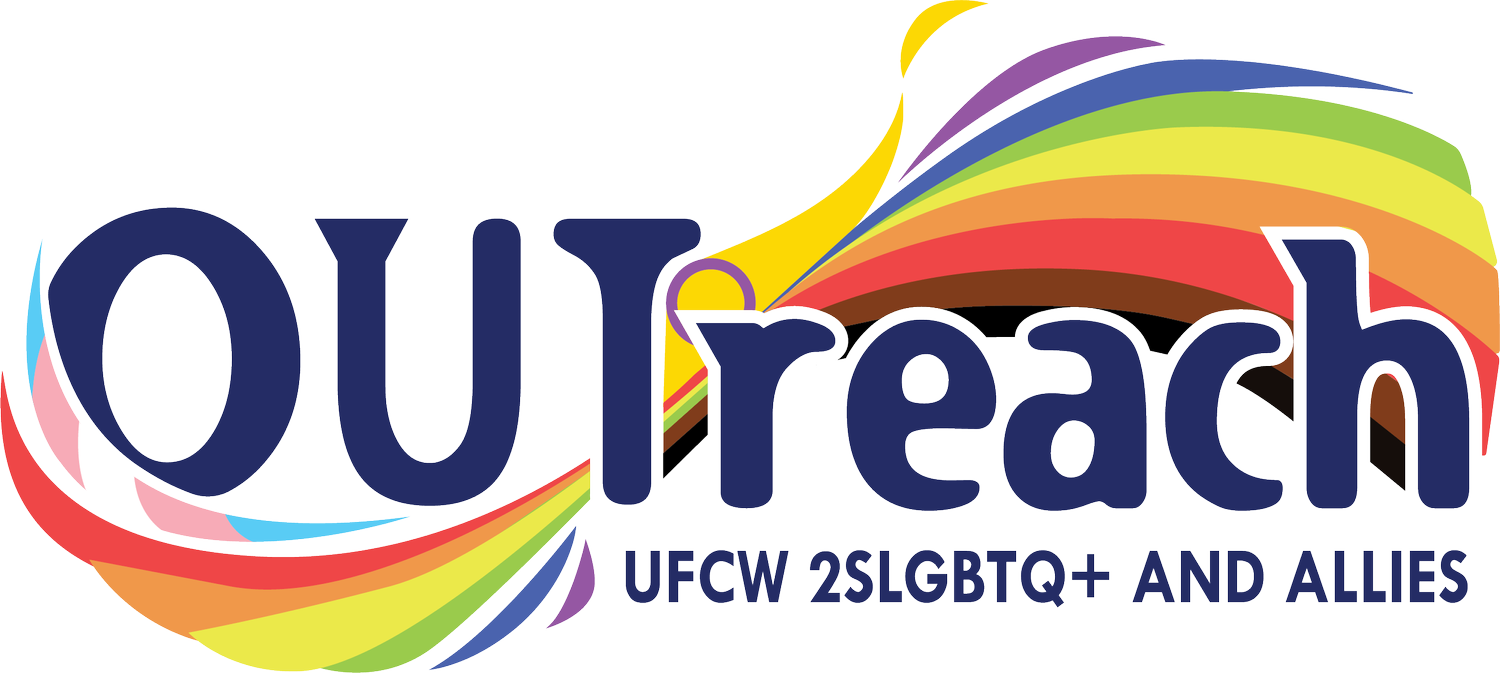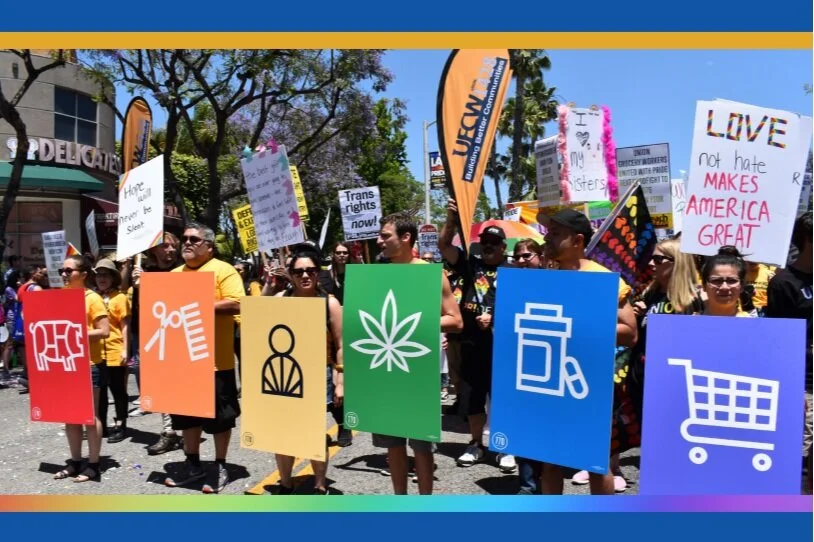BREAKING NEWS: UCLA-UFCW OUTreach STUDY OUT NOW!
A UCLA report published October 8 found that advocacy efforts by rank-and-file members of the United Food and Commercial Workers broadly support union organizing for safer and more equitable workplaces for LGBTQ workers in the U.S. and Canada, but the fight toward ending workplace discrimination is far from over.
The researchers hope that the findings can inform discussions and strengthen union organizing related to equity for LGBTQ workers across industries. The report was a collaboration between the UCLA Labor Center and the United Food and Commercial Workers OUTreach, an LGBTQ advocacy group within the union.
Labor unions are providing necessary layer of protection for LGBTQ workers
Study conducted by UCLA Labor Center with United Food and Commercial Workers OUTreach
The researchers surveyed 1,004 United Food and Commercial Workers members, one-third of whom identified as LGBTQ, in regions across the U.S. and Canada. UFCW members work in a variety of industries, including grocery, retail, health care, meatpacking and food processing, and cannabis.
Three-quarters of survey participants said their local union takes concrete actions to support LGBTQ workers and 70% said LGBTQ workers are protected by their union contracts. In addition, 68% said it should be a top priority for unions to explicitly prohibit discrimination based on gender identity and sexual orientation on the job.
The authors write that collective bargaining agreements are one of the tools unions can, and do, use to increase equity for marginalized workers. UFCW OUTreach organizers, for example, have negotiated for policies that explicitly prohibit discrimination based on gender identity and sexual orientation in the workplace, measures that have effectively filled existing legislative gaps.
More than two-thirds of the respondents said their current union contract protects LGBTQ workers, and more than half of LGBTQ workers said they felt protected at work because of their collective bargaining agreements.
The report offers a timely analysis of issues surrounding workplace issues for LGBTQ people and identity politics in North American labor movements. Its publication occurs just days before National Coming Out Day (which is Oct. 11 in both the U.S. and Canada), and just four months after a landmark U.S. Supreme Court decision affirming that LGBTQ and transgender workers are protected from discrimination at the workplace under the Title VII of the Civil Rights Act.
“The union has the power to advocate to address systemic inequities that affect LGBTQ workers by utilizing collective bargaining agreements as well as educational training that increases awareness of the urgency to improve the workplace for LGBTQ members,” said Michelle Kessler, the chairperson of UFCW OUTreach.
Among the survey’s other findings:
87% of union members said LGBTQ workers should be protected by their union contracts.
83% said LGBTQ issues should be supported by union leaders.
“When direct actions are taken by union leaders, workplaces are safer for LGBTQ members,” said Jean Tong, the union representative for UFCW Local 770 in Los Angeles. “Equally important is the thoughtful work our union has done to expand leadership opportunities for LGBTQ workers to participate in the decision-making process.”
While the survey respondents generally support LGBTQ workers’ rights and contract protections, the study also explores the ongoing on-the-job challenges LGBTQ workers face. The UFCW represents workers on the front lines serving customers and providing essential services to the community, where they are often exposed to overt discrimination, negative cultural attitudes and everyday indignities that are frequently minimized or go unnoticed.
“Nearly a quarter of LGBTQ workers reported being harassed because of their sexual orientation or gender identity and 43% had heard negative comments or stereotypes in their current workplace,” said Sid Jordan, a co-author of the report and a researcher at the UCLA Labor Center. “This points to the cultural and structural changes that will be needed to give meaning to nondiscrimination policies.”
The report outlines four main recommendations that would improve the workplace experience for LGBTQ people:
Develop proactive union agendas and policies that recognize and protect the rights and identities of LGBTQ workers.
Create visible, clear and concrete organizational structures for LGBTQ leadership and participation at every level of the union.
Develop organizing and labor education programs that focus on lifting up and affirming LGBTQ workers’ rights and identities.
Create spaces within unions and affiliated community centers where LGBTQ workers can work with their allies to eradicate workplace violence, discrimination and harassment.
The UCLA Labor Center is a unit of the UCLA Institute for Research on Labor and Employment.


